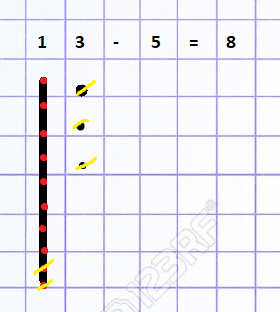English - Book Review 1: Summarising
We are going to look at book reviews this week and one of the key aspects of this is summarising a story. Children can find this difficult - you may know a child who is forever giving a stream of consciousness in conversation! Distilling an idea into succinct brevity does not always come naturally to the young.
For our example this week we are going to use "The Gruffalo." You can also use this text or you can choose your own, it does not matter but choose one that your child loves and will be enthused to work with. If you do not have a copy of "The Gruffalo" it is well worth anybody's time to enjoy the animated version on the BBC iPlayer:
https://www.bbc.co.uk/iplayer/episode/b00pk64x/the-gruffalo
Now, our task is to summarise the story into 6 key points. At first glance, this seems problematic:
- Mouse went for a walk.
- Mouse meets the fox.
- Mouse meets the owl.
- Mouse meets the snake.
- Mouse meets the Gruffalo.
- Mouse and Gruffalo scare away snake.
- Mouse and Gruffalo scare away owl.
- Mouse and Gruffalo scare away fox.
- Mouse tricks Gruffalo.
- Mouse eats nut.
This helps sequence but we have too many items for a summary. So look for things that could be grouped together:
- Mouse went for a walk (important for establishing story/setting/character).
- Mouse meets animals that want to eat him (shows pattern of text and crux of plot).
- Mouse meets his "imaginary" monster (hinge point of the story).
- Mouse uses Gruffalo to scare away the earlier predators (pay off for the story).
- Mouse manages to trick the Gruffalo (story resoulution).
- Mouse alone with his nut (ending).


To make this task easier, you can reduce the number of boxes down to 3 and just draw something that happens in the beginning, middle and end of the story.
To make this task trickier, when using the sentences try to include an adjective and conjunction in each sentence.
Maths - Subtraction
This week we will be mirroring the approach of last week's addition work but with subtraction.
We will again be looking to apply our maths skills into problem solving situations later this week and also look at the relationship between addition and subtraction. First though, we must blow off the dust on our strategies for solving take away calculations. The link below will remind you how to use the Top Marks website to help generate calculations to solve and also explains the number line and tens and ones partitioning method we use to solve them:
TASK - Use the Top Marks website:
Year 1: Choose from the 3 drop down menus: Level 1; Subtraction; then Up to 20.
Year 2: Choose from the 3 drop down menus: Level 2; Subtraction; then Two-digit Numbers.
Set the timer to manual and then have a go at some subtraction calculations. There are some number lines on our class web page on the school's website if you need them.
Year 1 - if you want a challenge try the Year 2 task.
Year 2 - if you want a challenge try the Two-digit numbers with decomposition.
This is where there are not enough ones to take away so we need to change a ten into 10 ones. We do this by overwriting 10 dots on a tens line:
Have a go and remember to have fun!
KS1 Team
